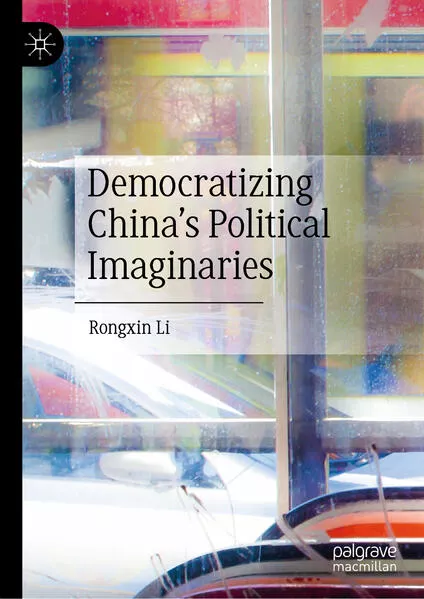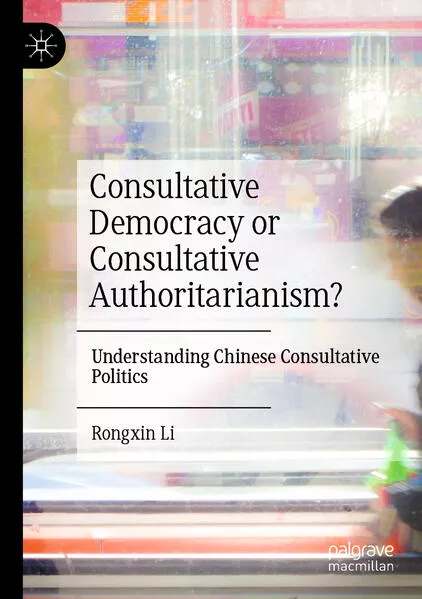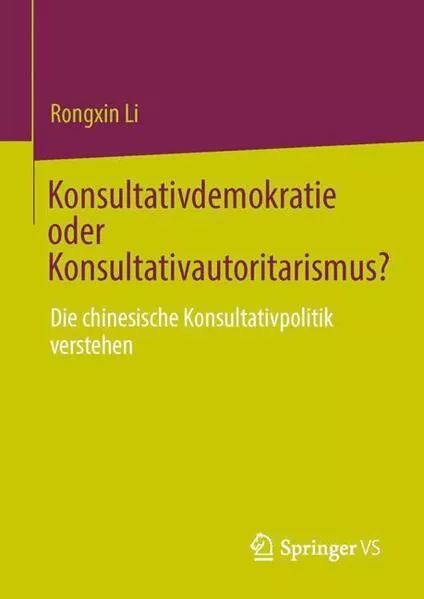
- Publikationen ca: 7
- Buchbewertungen ca: 1
- Fragen & Antworten
Rongxin Li
Rongxin Li is a postdoctoral fellow at School of Government and Research Center for Chinese Politics, Peking University, China; he holds a PhD from the Research Center of Sociological and Political Study in Paris and Paris 8 University, France.
Democratizing China’s Political Imaginaries
This book offers a meticulous empirical examination of Chinese democracy and its myriad discourses. Delving into the intricate workings of Chinese democracy, the author explores how the Chinese Communist Party employs democratic principles, how intellectuals grapple with the concept, and how the populace perceives and engages with democracy.
Democratizing China’s Political Imaginaries
This book offers a meticulous empirical examination of Chinese democracy and its myriad discourses. Delving into the intricate workings of Chinese democracy, the author explores how the Chinese Communist Party employs democratic principles, how intellectuals grapple with the concept, and how the populace perceives and engages with democracy.
Consultative Democracy or Consultative Authoritarianism?
This book theorizes Chinese politics, specifically about China’s “deliberative democracy (xieshang minzhu 协商民主)”. Creating a China-West comparative framework, the author interrogates China's government's claims to give representation to citizens, allowing readers to see how all of these concepts interact within Chinese ideology, democratic discourse, and governance, and their relationship with Chinese authoritarianism.
Konsultativdemokratie oder Konsultativautoritarismus?
In diesem Buch wird die chinesische Politik theoretisiert, insbesondere Chinas "deliberative Demokratie (xieshang minzhu 协商民主)". In einem vergleichenden Rahmen zwischen China und dem Westen hinterfragt der Autor den Anspruch der chinesischen Regierung, die Bürger zu repräsentieren, und zeigt dem Leser, wie all diese Konzepte innerhalb der chinesischen Ideologie, des demokratischen Diskurses und der Regierungsführung zusammenwirken und in welchem Verhältnis sie zum chinesischen Autoritarismus stehen.
Konsultativdemokratie oder Konsultativautoritarismus?
In diesem Buch wird die chinesische Politik theoretisiert, insbesondere Chinas "deliberative Demokratie (xieshang minzhu 协商民主)". In einem vergleichenden Rahmen zwischen China und dem Westen hinterfragt der Autor den Anspruch der chinesischen Regierung, die Bürger zu repräsentieren, und zeigt dem Leser, wie all diese Konzepte innerhalb der chinesischen Ideologie, des demokratischen Diskurses und der Regierungsführung zusammenwirken und in welchem Verhältnis sie zum chinesischen Autoritarismus stehen.
Consultative Democracy or Consultative Authoritarianism?
This book theorizes Chinese politics, specifically about China’s “deliberative democracy (xieshang minzhu 协商民主)”. Creating a China-West comparative framework, the author interrogates China's government's claims to give representation to citizens, allowing readers to see how all of these concepts interact within Chinese ideology, democratic discourse, and governance, and their relationship with Chinese authoritarianism.
Consultative Democracy or Consultative Authoritarianism?
This book theorizes Chinese politics, specifically about China’s “deliberative democracy (xieshang minzhu 协商民主)”. Creating a China-West comparative framework, the author interrogates China's government's claims to give representation to citizens, allowing readers to see how all of these concepts interact within Chinese ideology, democratic discourse, and governance, and their relationship with Chinese authoritarianism.






